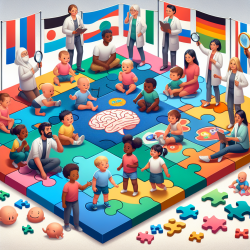Introduction
In the realm of health interventions, particularly among Indigenous communities, the traditional approaches often fall short. The article titled “We don’t separate out these things. Everything is related”: Partnerships with Indigenous Communities to Design, Implement, and Evaluate Multilevel Interventions to Reduce Health Disparities highlights the transformative potential of multilevel interventions (MLIs) that integrate Indigenous knowledge and community engagement.
Understanding Multilevel Interventions (MLIs)
MLIs are designed to address the complex layers of health disparities by considering diverse factors such as history, culture, and politics. These interventions move beyond individual-level focus to embrace community-level strategies, which are crucial for Indigenous populations.
Key Insights from the Research
- Collaborative Partnerships: The research underscores the importance of partnerships between Indigenous communities and researchers. These collaborations are built on mutual respect and aim to reconcile past research abuses.
- Inclusion of Indigenous Knowledge: MLIs that honor Indigenous and local knowledge systems are more effective. This approach involves integrating qualitative and Indigenous research methods to provide a holistic understanding of health disparities.
- Community Engagement: Engaging with the community is foundational. The research emphasizes iterative conversations and relationship building as essential components of successful MLIs.
Case Studies: Real-World Applications
The article presents three case studies that illustrate how Indigenous partners collaborated with researchers in designing, implementing, and evaluating MLIs:
- Design: The Ya’a De land-based healing camp focused on reconnecting Indigenous communities with traditional land-based practices.
- Implementation: A diabetes nutrition education program aimed at reducing food insecurity among Indigenous adults with Type 2 diabetes.
- Evaluation: The Nen ?nkUmbi/EdaHiYedo program focused on preventing sexual and reproductive health disparities among Indigenous youth.
Practical Steps for Practitioners
For practitioners looking to improve their skills or conduct further research, the following steps are recommended:
- Engage with the Community: Build relationships with Indigenous communities through consistent and respectful dialogue.
- Honor Indigenous Knowledge: Incorporate Indigenous perspectives and methodologies into your research and practice.
- Foster Collaborative Partnerships: Work alongside Indigenous partners to co-create interventions that are culturally relevant and effective.
Conclusion
The integration of Indigenous knowledge and community engagement in MLIs offers a promising path forward in addressing health disparities. By embracing these principles, practitioners can develop interventions that are not only effective but also respectful and inclusive.
To read the original research paper, please follow this link: “We don’t separate out these things. Everything is related”: Partnerships with Indigenous Communities to Design, Implement, and Evaluate Multilevel Interventions to Reduce Health Disparities.










